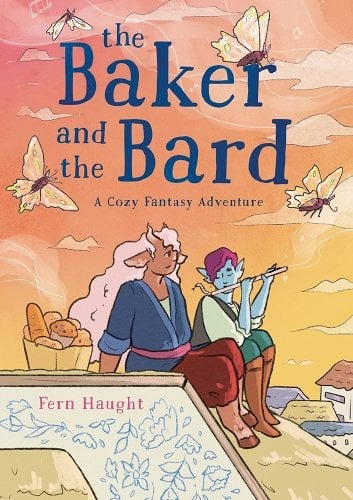Buy this from Bookshop.org to support local bookstores and the Lesbrary! One of my favourite micro niches is queer cozy fantasy middle grade comics—which mostly just means I adore the Tea Dragon series by K. O’Neill. I have a print from that series on my wall. I have the box set. I have the cardRead More
A Cozy Queer Bookstore Fantasy: Bookshops & Bonedust by Travis Baldree
Bookshop.org Affiliate Link This is a prequel to Legends & Lattes, which I adored. It’s a cozy fantasy novel with low stakes and impeccable vibes. Let me skip the conclusion of this review: if you liked the first book, I can’t imagine you won’t also like this one. And if you didn’t like Legends &Read More
A Fantasy of Community: Legends & Lattes by Travis Baldree
Buy this from Bookshop.org to support local bookstores and the Lesbrary! Legends & Lattes has been reviewed at the Lesbrary before, and it’s certainly gotten a lot of praise online in general, so why do I feel the need to add my own positive review to the mix? I think it’s because the reason IRead More
